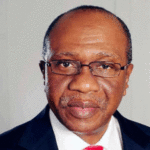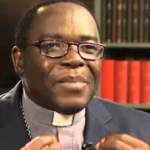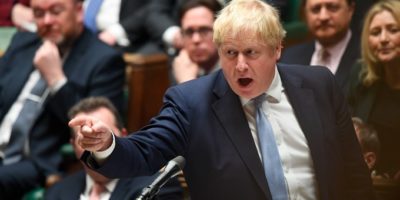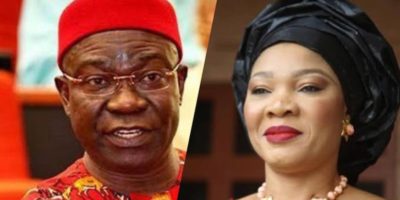UK Injects £10m Into Nigeria’s Energy Sector

- Returns £210,000 illegal payment
The United Kingdom has injected £10 million into Nigeria’s low carbon energy project. The concessional aid is aimed at reducing the risks, for pension and insurance funds’ to invest in energy access projects, and support Nigeria’s COP26 commitments.
UK also signed an agreement with the Nigerian government that would enable a compensation of £210,610 to the country following a successful investigation by the British Serious Fraud Office on the use of corrupt agents in the oil and gas sector.
The governments of Nigeria, United Kingdom of Great Britain, and Northern Ireland, yesterday, signed a Memorandum of Understanding (MoU) in a joint commitment to continue the fight against corruption.
The MoU was signed between UK’s Minister for Africa, Vicky Ford, and the Attorney General of the Federal and Minister of Justice, Abubakar Malami, who was represented by Permanent Secretary in the Ministry of Justice, Mohammed Umar. It sets out the terms and understanding between the governments of the United Kingdom and Nigeria to make the compensation payment.
During the signing of the MoU, Ford said,
The Security and Defence Dialogue held in February 2022 between our two countries reaffirmed both the UK and Nigeria’s commitment to work together to tackle illicit financial flows, bribery, and corruption.
The UK has a zero tolerance policy to corruption and we hope that today’s signing sends a clear statement about our commitment to this.
She noted that in a global economy where international trade was vital, it was more important than ever that companies operate with integrity and transparency.
Illicit financial flows, bribery, and corruption have been identified as major hindrances to economic growth, trade, stable governance, and the security of both countries.
The compensation payment from the UK to Nigeria was secured after a four-year corruption investigation led by the Serious Fraud Office (SFO) in the UK. The money was obtained through a Deferred Prosecution Agreement (DPA), which meant the prosecutor agreed to defer prosecution in exchange for the defendant agreeing to fulfil certain requirements, such as accepting criminal liability for offences and paying the appropriate compensation.
In this case, the DPA was agreed with Amec Foster Wheeler (AFWEL), in relation to the use of corrupt agents in the oil and gas sector.
The compensation payment demonstrated that when such crimes were identified, the UK Serious Fraud Office (SFO) would investigate the companies and, where evidence was found, ensure that they faced appropriate sanctions.
In March 2021, the UK government returned £4.2 million to Nigeria from funds recovered from associates of former Delta State Governor James Ibori.
However, in this case,
The Government of the United Kingdom will transfer the compensation amount in the sum of £210,610 (118.4 million Naira) within twenty-eight (28) days from the date of signing this MOU.
In both instances, the MoU’s confirm that the Nigerian government has pledged to use the returned funds for projects that will benefit and improve the country.
The UK will remain committed to returning all illegal assets, no matter the amount, as per the United Nations Convention Against Corruption (UNCAC).
UK’s Director of the Serious Fraud Office, Lisa Osofsky said,
We have a zero tolerance approach to companies who think they can bribe their way to financial success. Bribery and corruption not only stifle real economic growth and free trade, they also damage democracy and, therefore, risk the security of all our countries.
I am, of course, delighted that the tenacity of my SFO colleagues has resulted in the people of Nigeria being compensated in a way that will truly benefit them.
Malami, while thanking the UK for the gesture, promised that the repatriated fund would be expended on the Lagos-Ibadan Expressway, Abuja to Kano road, and the Second Niger Bridge.
On UK’s injection of £10 million of concessional financing alongside InfraCredit to mobilise pension and insurance investments, the statement noted that it would help to reduce the risk for pension and insurance funds to invest in energy access projects, and support Nigeria’s COP26 commitments.
The financing would also help Nigerian investors focus on low carbon energy, and support off-grid, low-carbon energy projects. Additionally, the £10 million would be blended to de-risk transactions and, therefore, mobilise domestic institutional investment from local pension funds, insurance firms and other local institutional investors. This would help scale up domestic financing for eligible off-grid clean energy infrastructure, such as solar mini-grid and home systems, clean cooking infrastructure and SME cold storage infrastructure in Nigeria.
UK Minister for Africa, Vicky Ford, speaking on the investment, said,
The UK is committed to increasing both renewable energy and energy access in Nigeria, driving clean, sustainable and resilient growth.
As the world looks to transition to clean growth, we are witnessing an era-defining opportunity for the private sector. This transaction is particularly exciting as it brings together UK government support with the institutional capital, which is essential to grow the sector at scale.
This innovative blended finance initiative will provide affordable long-term financing from local investors for the low carbon energy sector to support scaling up of off-grid low carbon energy projects in unserved and underserved communities.
This initiative will support the implementation of Nigeria’s Nationally Determined Contributions plan, which Nigeria submitted to the UNFCCC before COP26, its Energy Transition Plan, which was presented by the Nigerian government at COP26, and Nigeria’s plans to increase energy access, including the Solar Naija programme.
On his part, the MD/CEO, Nigerian Sovereign Investment Authority (NSIA), and Chairman of InfraCredit, Uche Orji said:
InfraCredit is pleased to be working with FCDO to mobilise private investment from domestic pension funds and other institutional investors into such an important developmental area as low carbon energy access.
This programme is aligned with NSIA’s other clean energy initiatives which aims to deliver up to 250-500MW of renewable energy capacity in Nigeria that will reduce annual CO2 emissions, alleviate poverty, create jobs and support local economic growth.
Speaking at the announcement, the Minister of State for Power, Mr. Godwin Jedy-Agba, said with the support from the UK Government’s Energy Transition Council showed the pathway to an energised economy and carbon neutrality by 2060. The assistance also highlighted the need for additional investments of $410 billion above business as usual over the next 40 years.
Jedy-Agba stated,
Whereas all efforts have been geared towards unlocking private sector activity in the clean energy transition, one major challenge continues to be private sector access to local currency financing. This is where local institutions such as pension and insurance funds have a key role to play, as only these institutions possess the scale of local currency liquidity required to accelerate the transition.
The Minister of Foreign Affairs, Geoffrey Onyeama, at a meeting with Ford said the federal government looked forward to cooperate with the United Kingdom (UK) in the security of the West African sub-region.
Onyeama received, in audience, the United Kingdom Minister for Africa, Latin America and the Caribbean. He expressed gratitude to the government of the United Kingdom for its extensive and significant support in diverse areas, stating that the West African sub-region is facing huge security challenges, including governance challenges.
He noted that the COVID-19 pandemic had a big hit on the economies of the world and also expressed gratitude to the United Kingdom for support during the period, particularly with vaccines and other support in the area of health.
Onyeama added that the United Kingdom had been involved in the security of the West African sub-region, saying a lot is going on in the sub-region, particularly in Mali, Guinea and Burkina Faso with the support of the United Nations.
The minister said,
So, we look forward to continue to cooperate with you in this area because we feel that it is not something that we can do alone in the sub-region.
We need the United Nations’ support and also the support of European countries. We have been engaged and in the framework of the G5 Sahel and other initiatives.
Speaking further on the specific assistance the United Kingdom planned to render Nigeria, Ford said the UK would be discussing with the Nigerian government how to help in community policing, training and improving the police.
Ford, however, emphasised that the move was a partnership and not the United Kingdom telling Nigeria what to do.
She added,
This was us listening, sharing experiences, especially from the national security areas which we may have seen and experienced both in our country, but also, from what we are seeing across the world and bringing our experiences together.

Justin Nwosu is the founder and publisher of Flavision. His core interest is in writing unbiased news about Nigeria in particular and Africa in general. He’s a strong adherent of investigative journalism, with a bent on exposing corruption, abuse of power and societal ills.













